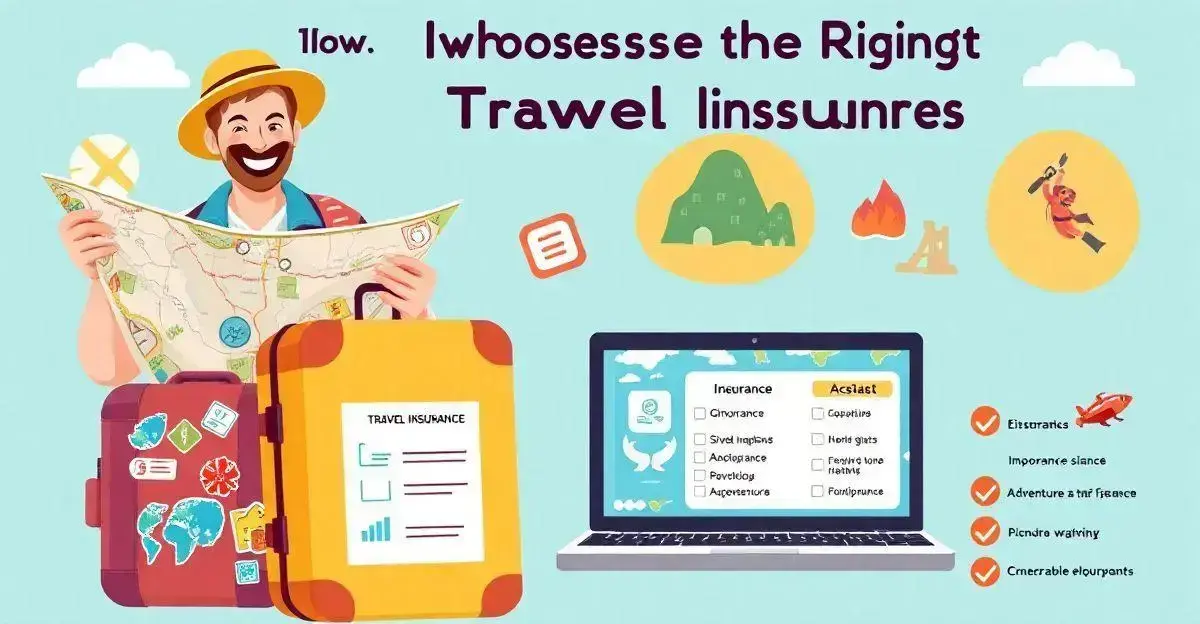Travel insurance is an essential part of planning any trip, offering peace of mind and financial protection against unforeseen events.
Whether you’re considering a weekend getaway or an international adventure, having travel insurance can safeguard your investments and ensure a smoother journey.
What is Travel Insurance?
Travel insurance is a type of insurance designed to cover unexpected events that may occur while travelling. It provides financial protection against a variety of risks, including medical emergencies, trip cancellations, lost luggage, and other unforeseen circumstances. Understanding what travel insurance includes is vital for any traveller looking to safeguard their journey.
There are several components to travel insurance. Most policies typically include emergency medical coverage, which will pay for hospital and medical expenses incurred during your trip. This is particularly important if you are travelling to a foreign country where medical costs can be exorbitant.
Additionally, travel insurance may cover trip cancellation costs, which can reimburse you if you have to cancel your trip for valid reasons like illness or natural disasters. Furthermore, coverage for lost or delayed baggage ensures you have assistance in case your belongings are misplaced or delayed, making your travel experience more comfortable.
It’s essential to read the fine print of each policy to fully understand what is covered and what isn’t. Looking for exclusions is equally important, as certain activities might not be covered, and knowing these details helps you choose a suitable policy for your travel needs.
Benefits of Having Travel Insurance

Travel insurance offers several key benefits that can greatly improve your travel experience. One of the most important advantages is the peace of mind it provides. With coverage in place, you can enjoy your trip without the stress of worrying about unexpected events.
Medical emergencies can happen anywhere, and travel insurance ensures you have access to quality healthcare abroad, which could otherwise be very expensive. Another significant benefit is trip cancellation coverage.
If you need to cancel your plans due to unforeseen circumstances, travel insurance can reimburse you for non-refundable expenses like flights and accommodation, helping to protect your financial investment.
Lost luggage is also a common issue for travelers. With travel insurance, you’re covered for the cost of lost or delayed baggage, allowing you to replace essential items and continue your trip without major disruptions.
In addition, travel insurance can cover personal liability. If you accidentally cause injury to someone or damage property while traveling, insurance can help protect you from significant financial costs. Many policies also offer 24/7 support, ensuring that if you encounter any issues abroad, assistance is just a phone call away.
Types of Travel Insurance Policies
When considering travel insurance, it is essential to understand the various types of policies available. Each type offers different coverage options suited to different travel needs. One of the most common types is single trip travel insurance, which covers you for a specific journey. This is ideal for those who travel infrequently and want coverage for one trip only.
Another type is annual travel insurance, which provides coverage for multiple trips within a year. This option is perfect for frequent travellers, as it often comes at a lower cost per trip compared to single-trip policies.
Specialist travel insurance is also available for specific activities or demographics. For instance, business travel insurance covers trips related to work, while adventure travel insurance is tailored for those engaging in high-risk activities like skiing or hiking.
Additionally, there is family travel insurance, which offers a comprehensive policy for the entire family, often at a discounted rate. This option simplifies the process of securing multiple policies for each family member.
Lastly, some insurers offer group travel insurance, which is beneficial for organisations or teams travelling together. Group policies can be more cost-effective while ensuring everyone in the group receives adequate coverage.
How to Choose the Right Travel Insurance

Choosing the right travel insurance is crucial for a safe and enjoyable trip. There are several factors to consider, starting with evaluating your travel needs. Look at the destinations and activities you’re planning. If you’re going to a location with high medical costs, ensure your policy offers sufficient emergency medical coverage.
Next, consider whether you require trip cancellation insurance. This is helpful if you think there’s a chance you might need to cancel your trip for reasons such as illness or unforeseen events. Understanding the terms and conditions regarding cancellations can save you money.
It’s also essential to check the exclusions in each policy. Some plans may not cover activities like extreme sports or pre-existing medical conditions, so if you plan to participate in these activities, look for policies that provide this coverage.
Additionally, compare prices from different insurers, but remember that the cheapest option is not always the best. Look for policies that offer a balance of good coverage and reasonable cost. Reading customer reviews can give insights into the service and support offered by insurance companies.
Lastly, don’t hesitate to ask questions. Reach out to the insurer to clarify any doubts you may have. A knowledgeable agent can help you find the best policy that fits your travel plans and provides peace of mind.
Common Exclusions in Travel Insurance
When purchasing travel insurance, it is vital to be aware of the common exclusions that might affect your coverage. These exclusions define specific circumstances that the policy does not cover.
One frequent exclusion is pre-existing medical conditions. Many travel insurance policies do not cover any health issues that existed before you purchased the policy. If you have a medical condition, it is essential to disclose it before buying insurance to avoid complications later.
Another common exclusion involves high-risk activities. If you plan to participate in adventures such as skydiving, scuba diving, or skiing, make sure your policy provides coverage for these activities. Standard policies generally do not include high-risk activities.
Some policies also exclude coverage for travel to certain countries. If you plan to visit areas with travel warnings or conflicts, your policy may not cover you. Ensure that the locations you intend to visit are within the insurer’s coverage area.
Moreover, there may be exclusions for loss or theft of personal belongings. Check whether your policy covers this adequately, as many policies impose limits or conditions on such claims.
Finally, be cautious of exclusions related to alcohol and drug use. Many insurers will not pay out claims if you were under the influence at the time of an incident.
Tips for Filing a Travel Insurance Claim

Filing a travel insurance claim can seem daunting, but knowing the correct steps can simplify the process. Start by reviewing your policy to understand what is covered and the specific requirements for filing a claim. Each policy has different rules, and knowing these can save you time and effort.
Next, it is important to collect documentation. Gather all necessary documents, including receipts, medical reports, and police reports if applicable. Proper documentation is crucial as it serves as proof for your claim.
If you are claiming for medical expenses, ensure you get a full breakdown of costs from your healthcare provider. This should include detailed invoices and any other relevant information that the insurance company may require.
After compiling your documents, fill out the claims form provided by your insurer. Be thorough and precise when completing the form. Any inaccuracies or missing information can delay the claims process.
Once your claim is submitted, it’s wise to follow up regularly. Keeping in touch with your insurer can help you stay updated on your claim status and resolve any issues that may arise quickly.
Finally, be patient. The claims process can take time, but understanding what to expect will ease your stress. If you feel your claim is unjustly denied or delayed, most insurers have a formal complaints process you can follow.
The Importance of Travel Insurance for a Safe and Enjoyable Journey
Travel insurance is an essential part of any trip, providing critical protection against unforeseen events. Understanding the types and benefits of coverage allows travellers to make informed decisions tailored to their needs.
Choosing the right policy ensures that you are protected from common exclusions and unexpected accidents, helping to secure your travel investment and peace of mind.
By knowing how to effectively file a claim, you prepare yourself to navigate the claims process more easily and efficiently. Remember to keep all necessary documentation and follow up with your insurer as needed.
Ultimately, the right travel insurance can enhance your overall travel experience, allowing you to focus on enjoying your journey while being reassured that you are protected.
